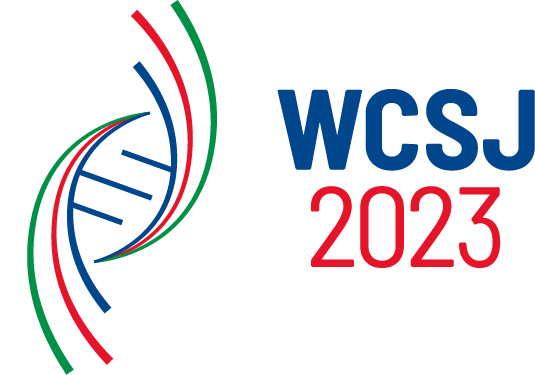|

The opening day of the World Conference of Science Journalists (WCSJ) 2023 in Medellín, Colombia saw hundreds of journalists from 62 countries come together in the stunning setting of the city’s Jardin Botanico.
Over 500 attendees are here over three days to discuss science journalism, to challenge ideas and to reinforce their professional networks and friendships.
The day began with a keynote on biodiversity delivered by Brigitte Baptiste, a Colombian biologist and expert in biodiversity issues. And it closed with an opening ceremony and vibrant social event for attendees.
Both took place under open skies in the Jardin’s orquideorama, an open air meshwork of flower-tree structures surrounded by trees, butterflies and with a backdrop of birdsong.

Milica Momcilovic, President of the World Federation of Science Journalists said: “Independent journalism is the lifeblood of democracy and our focus at the Federation is, and will continue to be, supporting independent science journalism around the world. I have seen first hand how talented science journalists can change the world for the better and during this conference they will tell us these stories in person.”
Ximena Serrano Gil, Director of the Medellín conference said: “Colombia and Medellin are a biodiversity hotspot, an unrivalled laboratory for helping other nations adapt to climate change, a model for how to feed populations in rapidly changing tropical environments, and a cultural repository where thousands of years of indigenous peoples' knowledge can make a lasting contribution to the wisdom of future generations.”
She continued: "The opportunity to share ideas and collaborate with others is invaluable and we must continue to create platforms that facilitate these interactions. I hope that other places in the global south will have the opportunity to host the WCSJ."

Wednesday
This morning the keynote on climate change was led by Paola Andrea Arias Gómez, professor of the Environmental School of the Faculty of Engineering of the University of Antioquia, and moderated by Ximena Serrano Gil. The discussion focused on how to embroider the risks that put the stability of the most vulnerable at risk.
This was followed by the launch of a Global Report into Ethics in Science Journalism, supported by the Kavli Foundation. Luisa Massarani and Vera Novais led the room, outlining the survey and its findings. The full report will be published after the conference and we will share it with you as soon as it is available.

Thursday
On the last day of the conference we are looking forward to the Open Science Plenary at 11.00, which will present the UNESCO Open Science Recommendation that was ratified in November 2022. Speakers will provide a range of perspectives on what it means for universities, governments and journalists, and what open science means to them personally.
In the afternoon Thomas Hartung, Director of the Centers for Alternatives to Animal Testing, will present his latest research on organoid intelligence and the future of modern computing from human brain cells. This is a rapidly moving field and as well as allowing time for a rich Q&A during the session we hoping to fit in a press briefing where journalists can ask their questions. Watch this space for confirmation...
|
